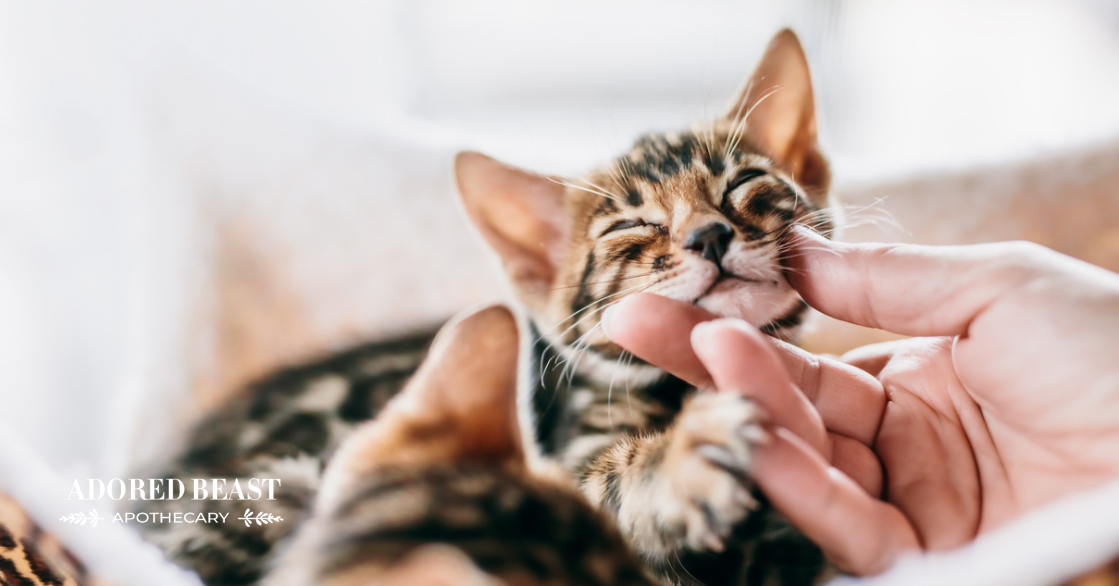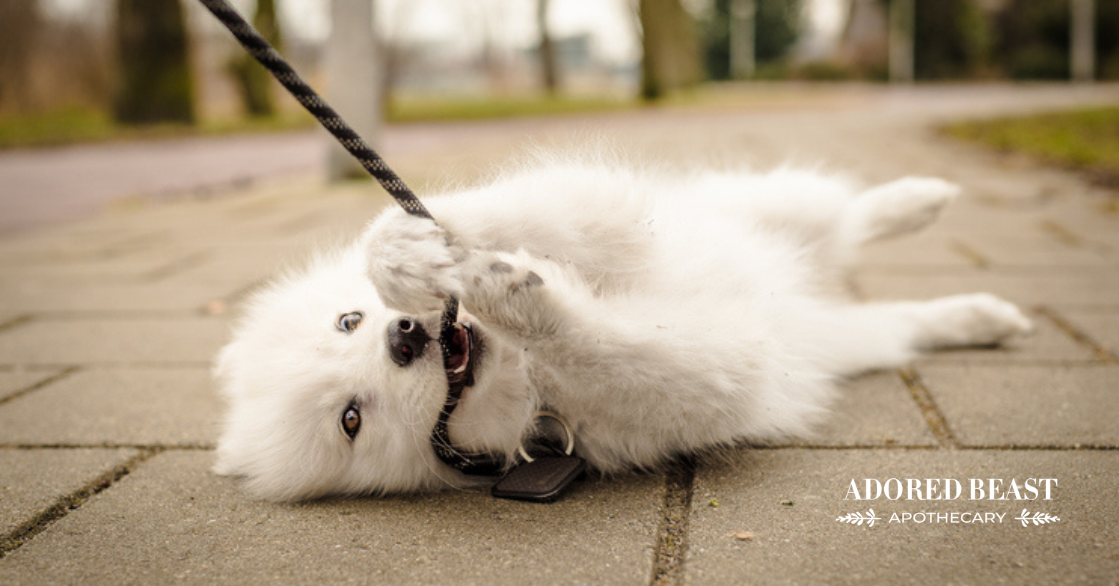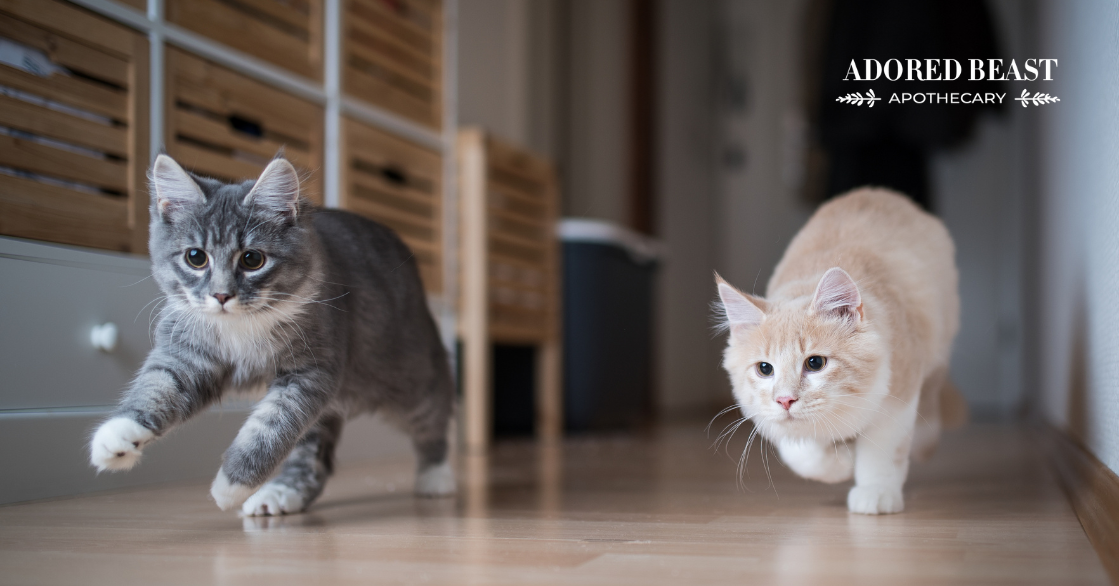For most animals, there are very recognizable sounds that we associate with them. In fact, most of us are taught them as children.
What sound does a cow make? Mooooo. What about a horse? Neighhhhh. A dog? Woof!
And cats… meow or purrrrr.
I can bet most of you reading this have made that “purrr” sound yourself at least once in your life (some of you may even be thinking about doing it right now!). Many have probably done it at least once this week!
And when we think about a car purring, we usually think it’s a happy, contented sound. We’re snuggling, they’re getting pets, and they’re happily purring away.
But is happiness the only reason? Why do cats purr?
As usual, our cats are mysterious creatures… and a purr may not always mean what we think!
What is a “Purr”?
Cats learn how to purr within a few days of being born. It’s an important communication tool that mothers will use to communicate with their babies, and for kittens to communicate with each other.
And this purring continues. But what is it, exactly?
Purring is a sound that is believed to start in the internal laryngeal muscles. The laryngeal muscles are responsible for the opening and closing of the glottis (the space between the vocal chords), which results in a separation of the vocal chords. Essentially, cats can constrict the part of their larynx that touches their vocal cords, which causes vibrations with every inhale and exhale. We hear those vibrations as a purr.
Fun Fact: Purring is a unique vocal feature of our feline friends. However, other species in the cat family also purr, including bobcats, cheetahs, pumas, and wild cats. And while not “true purring”, some big cats like lions, tigers, and jaguars also make purr-like sounds. What’s even more interesting is that lots of animals can imitate the sound of purring, among them bears and guinea pigs!
Why Do Cats Purr?
Let’s start with this: we know a little, but experts don’t really know for sure why cats purr. Purrs may be one of the most recognizable sounds in the animal kingdom, but they also remain one of the most mysterious.
That said, experts agree that there are many different scenarios in which cats let out that soft rumble – and while, as mentioned, we usually assume it means they’re happy, it can also be a sign of something else.
So, why do cats purr? And how can we tell the difference between a happy purr and a purr that means something else?
1. They’re Happy
This is the most obvious reason. We know that when cats are purring in certain situations, it’s undeniably because they’re content. When they’re laying with you, and you’re petting them, and they purr, chances are, it’s because they’re enjoying the attention and affection.
2. They’re Hungry or Want Attention
Let’s face facts: cats are master manipulators. Often when a cat wants attention, be it for food or pets, they’ll purr at you. And usually they’ll combine this purr with an unpleasant cry or meow. Experts believe this is done because it’s more likely to get your attention (and it usually works).
[RELATED] Speaking of hunger, what’s the best way to feed a cat?
3. They’re Talking to their Feline Friends
As mentioned, cats learn very early how to communicate with each other. And purring is one form of communication. Purring also helps a kitten bond with its mother. Mama cats use it like a lullaby. Others will purr when a beloved human enters a room, or to talk to their fellow feline roommates.
4. They’re Stressed or In Pain
While most cats will meow or cry if they’re in pain or stressed out, they might also purr. It’s thought that this is done an attempt to self-soothe, as it may help them to feel calmer or even relieve pain. There is even some research that suggest purring can help with healing. Thanks to the low frequency, gentle vibrations, purring may be able to assist with healing bones and soft tissues repair, building muscle and repairing tendons, easing breathing, and reducing pain and swelling.
It may also be because they’re trying to get help from us!
5. We’re Stressed or in Pain
Despite their constant need to be the boss, and their attempts to bend us to their will, our felines care about us a great deal. And in certain situations, your cat may be purring for your benefit alone!
Scientific American reported that a cat’s purr can reduce blood pressure and stress levels in humans, and that the frequency of a cat’s purr can be healing. So, if you’re feeling stressed, or sore, your cat may just be using those healing vibrations to make you feel better!
There’s no sound or feeling quite like a purr. For some of us, it’s an essential element of our daily routines, alerting us to dinner or helping us fall asleep at night. For others, it’s the ultimate calming balm, soothing us after a hard, stressful day, and bringing about the ultimate sense of peace.
Why do cats purr? We may not know all there is to know about this sound, but by paying attention to both the sound itself and our cats’ body language, we may be able to differentiate from purr to purr and better understand our furry felines.












![[RESEARCH] Is Herbicide Safe for Dogs?](https://blog.adoredbeast.com/wp-content/uploads/2025/06/herbicides-safe-for-dogs-103x55.png)